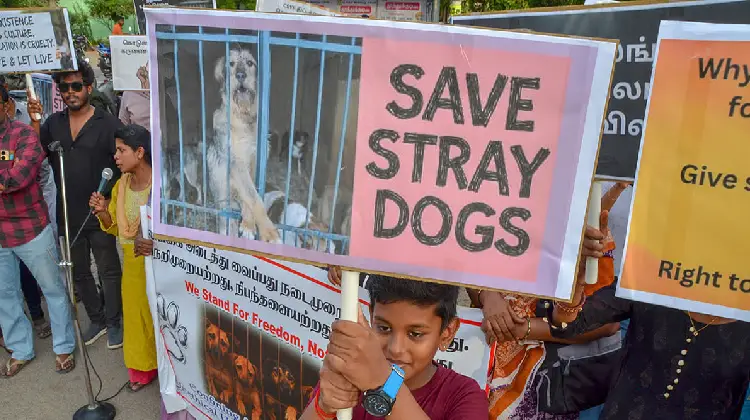The ongoing national debate over the management of stray dogs has reached a new turning point following a crucial ruling by the Supreme Court of India on Friday, August 22, 2025. The three-judge bench, comprising Justices Vikram Nath, Sandeep Mehta, and N.V. Anjaria, has modified its earlier, more controversial directive from August 11, which had ordered the permanent relocation of all stray dogs to shelters. The new order now mandates a “sterilise, immunise, and release” policy, bringing a sense of relief to many animal welfare advocates and dog lovers.
The court’s updated ruling specifies that stray dogs, once sterilised and vaccinated as per the Animal Birth Control (ABC) Rules, 2023, must be returned to the same locality from which they were picked up. This rule applies to all canines except those that are infected with rabies or are exhibiting aggressive behaviour. The new order also extends the scope of the matter to a pan-India level, with the goal of formulating a national policy on stray dog management.
Another significant part of the verdict is the prohibition of public feeding of dogs on streets. The court has directed municipal authorities to establish dedicated feeding zones in every ward. This move, aimed at reducing conflicts between humans and animals, has drawn both praise and concern.
Prominent public figures and animal rights activists have weighed in on the ruling. Maneka Gandhi, a long-time animal rights activist and BJP leader, welcomed the verdict as a “scientific judgement.” She highlighted that relocation and fear are often the main reasons for dog bites and noted that the new policy is a more humane approach. However, she also raised a critical point, stating that the court has not defined what constitutes an “aggressive dog,” which could potentially lead to the misuse of the law.
Other activists echoed this concern, celebrating the decision to release the dogs back to their original habitats while cautioning against the potential for authorities to unfairly label dogs as “aggressive.” Lawyer and petitioner Nanita Sharma called the verdict a “balanced order” that acknowledges both animal welfare and public safety. Meanwhile, some citizens expressed apprehension about the continued presence of strays in their neighborhoods, highlighting the public health risks associated with a high stray dog population.
The Supreme Court has asked all states and Union Territories to provide their response on the matter, signaling a long-term commitment to finding a comprehensive and sustainable solution to the stray dog issue.
Key Highlights:
- The Supreme Court of India has modified its previous order on stray dogs, ruling that all sterilised and vaccinated canines must be released back to their original localities.
- The new directive, which applies to all of India, prohibits the release of dogs only if they are rabid or exhibit aggressive behavior, a term that activists say needs a clear definition.
- The court also ordered a ban on public street feeding of stray dogs and mandated that municipal bodies create dedicated feeding zones in every ward.
- Animal rights activist Maneka Gandhi praised the “scientific” nature of the ruling but expressed concern over the lack of a legal definition for “aggressive” dogs.

